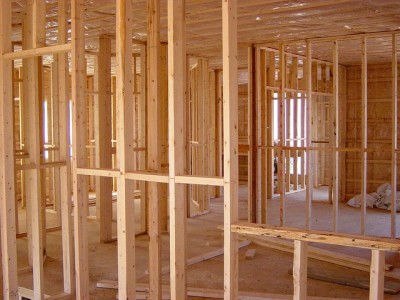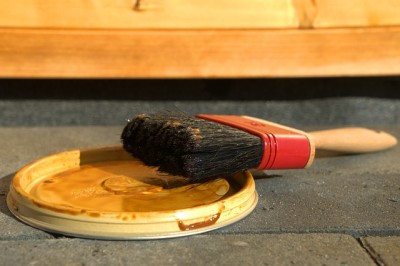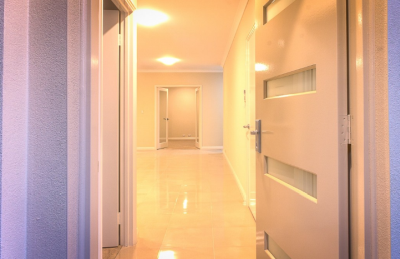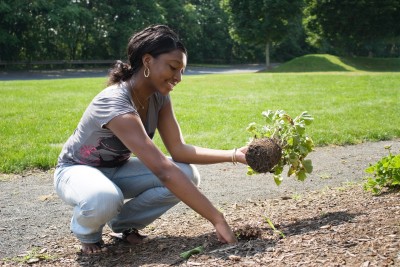Property Development: How You Can Maximize Return
Getting into the property development sphere can be like stepping into a mire. There are dozens of pitfalls and potential snags that are waiting to drag you under. There are also many ways in which you can end up pumping too much money into an investment, meaning you end up not even breaking even at the end.
It’s a tough game, and even those who have been in it for decades, such as Lincoln Frost, are sometimes surprised by the results. The market fluctuates, constantly moving one way or the other, and to make things worse this varies by area. In the main, you can make a fairly consistent return so long as you put in the work.
Barring anything drastic, like the financial crisis in 2008 which not even the top analysts could predict, you should be okay. However, there are ways of maximizing your return.
The below guide isn’t all-encompassing but it will give you an idea of the things you need to be considering, especially if it is your first foray into property development. Whether you’re thinking about styling an office out or converting a condo, developers always have more to learn.
Pick Your Specialization
Developers should have their noses to the ground about all kinds of potential development or property opportunities available. However, some specialize in certain types of property.
There are average house builds, where a developer would purchase a house, do it up and rent/sell it on. Or a developer could go down the commercial roof. Be careful, the commercial route may see an increased return, but it’ll cost more to fit out, with aspects such as Commercial Roofing needing to be taken into account.
There’s no harm in flitting from one to the other as the opportunities arrive. However, the more time you spend in one kind of area, the better you get at spotting trends and opportunities, making future investments a little easier to identify and get into.
Research The Area Thoroughly
So you think you’ve found the perfect place? It’s not always the property you need to research. You have to look into the area too because this will also affect the property’s value.
Imagine you buy a building, and get ready to start renovating to find that something else will be built nearby. Something industrial. Or maybe a road or water pipes. They’ll reduce the value of your property and when you get the valuation you might be in for a nasty surprise.
This is why you need to research. Not just a simple Google. Speak to your local council office, and see if there are any major infrastructure plans in the offing. Is there any woodland or fields in the area?
Are there plans to develop these? Make sure places like this are protected before purchasing your property for investment. Research guards your future interest and guards your money.
No one will do it as diligently as you can, because no one will care as much as you. Think outside the box, if something is too good to be true it just might be. The research will find out.
Don’t Fall Into the Trap of Thinking You Have To Buy Local
When starting out and thinking about going into housing development a lot of people start local. Either in the town or city where they grew up or currently live.
There are key pluses for doing this. You’ll know the area well, meaning a lot of the research isn’t needed. You’ll also know the demographics, meaning if you wanted to build or convert a student house you know exactly where to do this. Yet, there are drawbacks too.
You could be missing some great opportunities elsewhere simply because you didn’t look. You don’t have to buy locally. Don’t force yourself into buying something just because you think it’ll be convenient.
Have a look at the town over at least, you could not only end up making more money but saving some in the process.
Upskill in a Trade as Far as Possible
You’re not going to become a trade pro unless you did so before getting into development. But you can save yourself some money by upskilling in a trade.
By doing this, you can do some of the smaller jobs in the trade. Painting is a prime example. However, when you come to electrics and plumbing you’d be better off speaking to professionals. Same with gas. Doing small bits of work will save you money, but botching big bits of work will cost you money.
Remember, there will be expenses here in terms of tools and equipment needing to be bought — this would be applicable when you do the small works by yourself.
For instance, you if you planning to install the doors and windows without any expert help, you would need to invest in screwdriver sets, measuring tapes, a drill, a hammer, wood fillers, door handles, knobs, window panes, hinges, and more. There will also be a rough learning curve, where things take a lot longer than they should because you’re new.
In certain cases, it can be worth getting a pro in and learning from the first. YouTube is a great teacher, but nothing beats actually being there when the work is being undertaken.
Haggle
If you’re in development for the long term you might be able to forge good relationships with tradesmen, meaning as you’ll guarantee them more work they’ll be more inclined to do a job for a good rate. However, they need to make a living too.
When you start out you might be alarmed by the prices. Make sure you get at least three quotes for each job. Don’t be put off by the time this will take, it’ll stop you from getting ripped off.
When you have the cheapest quote (make sure its from a qualified tradesman with good history) see if you can knock it down a little by haggling. It’ll do wonders for your profit margins if you can save some cash.
The bigger the job, the more room there is for reducing it slightly.
Land and Permission
Sometimes you might not want to get into the nitty-gritty of property and buildings. If you have an eye for this kind of thing you can look at land purchasing.
This is often done with a view to building land. However, you can also buy the land, get building permits, and then sell it meaning you don’t need to build anything to make an actual profit.
The profit margins can be narrow though, as obtaining permission can be tough, especially if there are certain variables in place which can stop the process from being a smooth one.
It can also take a long time, months in some cases, so remember this has to be a longer-term investment. You also need to make sure you don’t need the money back to pay off any creditors.
There are Businesses Which Can Help
It can be really tough to find a place with potential. Especially if you’re looking for something particular or with a certain profit margin. There are businesses that can help.
They’ll know places for sale or places that are about to come on the market and can point you in the right direction, or they might be able to answer questions you have like “can i subdivide my property?”, if this is something you are interested in. The expertise these can offer can sometimes be well worth it. The fee involved needs to be realized as an expense, but if said expense makes you more money in the long term it’s worth it.
Again, this should form part of the research you would have undertaken at the outset. Make sure you book some time in and have a chat with a representative before going ahead and handing any money over.
To Rent Or To Sell
Making the decision between the two can be tough. If the housing market decides to take a dip, you can mitigate any losses by renting the property out in the short term until it takes off again.
Waiting like this means you can get the most for your money. You need to know what kind of returns are available for rental in your area. You can find this out easy enough by doing some research. The only issue here is when you need to sell the property to pay any loans back.
If you’re looking to build up a portfolio then rental can offer consistent returns. Developing flats and apartments can be a surefire way to find a renter. If you were going big you could think about the return on an entire block of flats. This is a decision you need to make right at the outset.
Don’t change your mind halfway through because, depending on the rental contract, you may even need to furnish the property which won’t be cheap. If you know about this at the outset you can absorb the cost.
Family And Friends Go A Long Way
Getting some friends and family in means you can get some of the simple work done quicker. This could mean stripping paint, wallpaper, light demolition, or garden work.
Something that would usually take you a long time alone would be much faster with the right kind of help. Just make sure it’s a safe environment beforehand so no one gets hurt.
If the house is derelict or has rotten upper floors you don’t want people traipsing around and it might be better to get professionals in right at the outset of your project.
What are you trying to do to increase property return?






![How to Create an Awesome Home Office [Infographic]](https://stumbleforward.com/wp-content/uploads/2020/01/man_at_computer_headset_-1.jpg)


